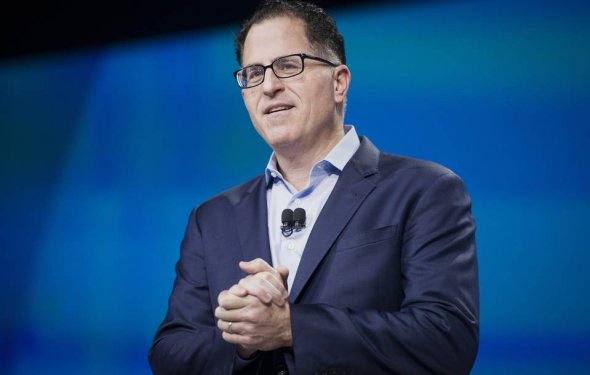OTA TV stations

Michael Dell stands to create billions of bucks on neighborhood television stations you’re not likely watching.
Since 2011, Michael Dell and his lovers have actually quietly spent over $80 million to buy up independent TV channels, in accordance with government documents gotten because of the Wall Street Journal. Almost all of those opportunities were in TV programs which had little, if any, viewership, and catered to a small portion of industry, in accordance with the in one single example, Dell’s investment company, MSD Capital, through its subsidiary OTA Broadcasting LLC, obtained a station in Pittsburgh that airs just a local Catholic Church’s daily size and reruns associated with the formerly preferred TV show “Roseanne.”
While a billionaire purchasing up hardly watched TV programs may seem odd, there’s a plausible cause for those opportunities: all programs very own potentially valuable broadcast spectrum. That broadcast spectrum has-been tapped because of the Federal Communications Commission (FCC) to be repurposed to boost cordless system reliability and rates. Collectively, Dell’s opportunities could see him tally around $4 billion on their $80 million investment.
Just how Dell’s investment staff could ultimately reach $4 billion is complicated, as you would expect.
Starting in March, the FCC will hold the first-ever “incentive auction.” The auction will allow television section proprietors who hold rights to range which could otherwise be properly used for wireless companies to place that range up for auction. Cordless companies, including Verizon , AT&T , Sprint , and T-Mobile , amongst others, will then are able to buy that spectrum at auction to improve unique systems. According to data obtained by Fortune from FCC, starting quote rates on those deals increase well to the billions of dollars.
SIGN UP: Fortune’s daily publication concerning the company of technology.
It really is believed—though perhaps not confirmed—that Dell’s financial investment supply acquired those stations for only function of sooner or later offering the range to wireless organizations. For a somewhat paltry sum, Dell along with his group could net a huge profits on return and fundamentally leave with billions of bucks in-hand after just a few several years of operating hardly viewed television programs.
At its core, the auction has a significant function. Given that FCC records on its website, the motivation auction is directed at assisting everyone—companies and customers, alike.
“The auction use marketplace forces to align the application of broadcast range with twenty-first century consumer needs for movie and broadband solutions, ” the agency writes. “It will protect a robust broadcast TV business while enabling stations to build additional profits they can invest into development and solutions toward communities they serve. And by making important ‘low-band’ airwaves available for wireless broadband, the motivation auction may benefit consumers by easing congestion on wireless sites, laying the groundwork for ‘fifth generation’ (5G) cordless solutions and programs, and spurring task creation and economic development.”
WATCH: For more on Dell, browse the after Fortune movie:
Nevertheless, not everybody is happy by the concept. Both AT&T and Verizon have had restrictions placed upon all of them for how much range they could purchase, being to ensure smaller companies, like Sprint and T-Mobile, may also gain benefit from the sale. Also, the National Association of Broadcasters (NAB) features expressed anxiety about the principles, since even those stations which do not take part in the auction may be obligated to go their spectrum. Simply put, even in the event a station will not choose to offer its spectrum into the auction, the FCC will lump all of them on spectrum rings with the ones that went to auction.
So, there's basically an internet of guidelines, regulations, along with other conditions that will fundamentally influence every person. The greatest goal is for wireless systems to bolstered using the spectrum that television channels have been using consistently. In the process, however, there are fears that the goal won’t match the outcome.
For Michael Dell, however, the road ahead seems clear. Presuming Dell helps make the choice to sell his TV stations’ range, he stands to produce a substantial return. But he’s not the only one. In accordance with the Journal’s sources, CBS and Comcast , and others, also have chose to put a few of their neighborhood television affiliates on the market. Private equity corporations which have been gobbling up programs may seeking to sell their channels.
CONSIDERABLY: FCC Denies T-Mobile Obtain Future 4G Spectrum Auction
Still, one question continues to be: Will they actually become successful in selling those stations? As the programs begin the auction at a cost of their choosing, the values will continue to tumble before telecoms come to an understanding. It’s possible, therefore, your sales costs is going to be lower than Dell as well as the others would anticipate. it is also possible that no sales will be registered, generating a no-win situation for many functions included.
If you can find product sales, TV channels really have two options: Move their particular networks to some other broadcast frequency or go-off air. It’s unidentified exactly what those channels will decide through to the auction has ended.
|
Amplified HDTV Antenna, 50 Miles Range, Te-Rich HD Indoor TV Antenna with Amplifier Home Television Antennas (High Definition, Super Thin, Lightweight, Soft) - with 15ft High Performance Coax Cable BISS (Te-Rich)
|